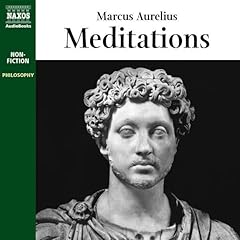
The Discourses of Epictetus
As Reported by Arrian
No se pudo agregar al carrito
Add to Cart failed.
Error al Agregar a Lista de Deseos.
Error al eliminar de la lista de deseos.
Error al añadir a tu biblioteca
Error al seguir el podcast
Error al dejar de seguir el podcast
Obtén 3 meses por US$0.99 al mes
 Exclusivo para miembros Prime: ¿Nuevo en Audible? Obtén 2 audiolibros gratis con tu prueba.
Exclusivo para miembros Prime: ¿Nuevo en Audible? Obtén 2 audiolibros gratis con tu prueba.
Compra ahora por $17.93
-
Narrado por:
-
Robin Homer
-
De:
-
Epictetus
Epictetus was born a slave, but at an early age developed a passion for philosophy, and with the permission of his master, he studied under Musonius Rufus. He obtained his freedom sometime after the death of Nero in AD 68 and later began teaching in Rome, until his banishment from the city around AD 93, after which he travelled to Nicopolis in Greece and carried on teaching there for the remainder of his days. His teachings were written down and published by his pupil Arrian in The Discourses and later summarised in The Enchiridion. They have been influential since they were written and are referenced frequently by Marcus Aurelius in his Meditations.
Epictetus puts a strong focus on philosophy being practiced as a way of life, and not just a theoretical consideration. He also emphasises that many events are largely beyond our control and so, we should learn to accept events calmly and dispassionately and instead, put our focus on our own actions.
This recording includes the Discourses and accompanying fragments.
Public Domain (P)2021 Robin HomerListeners also enjoyed...























